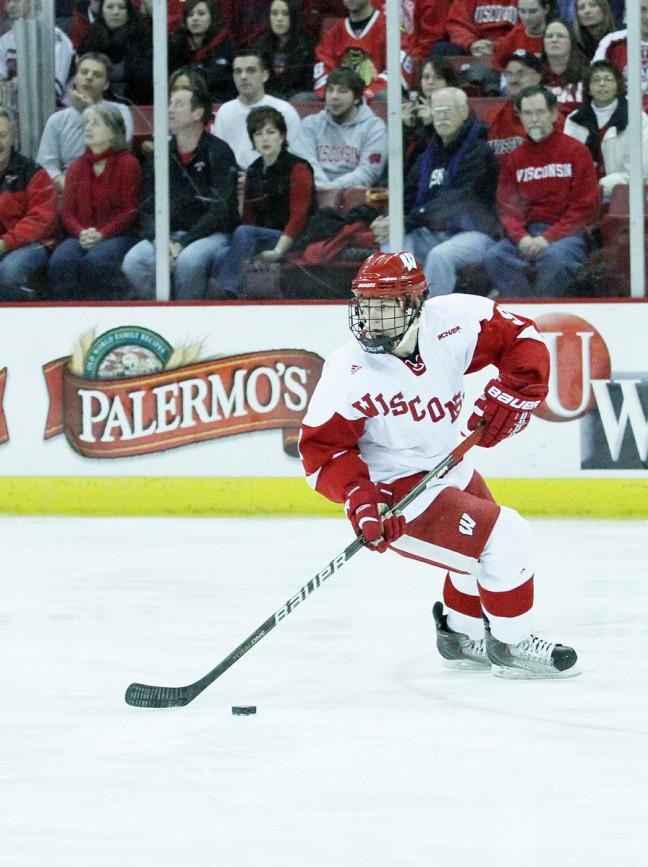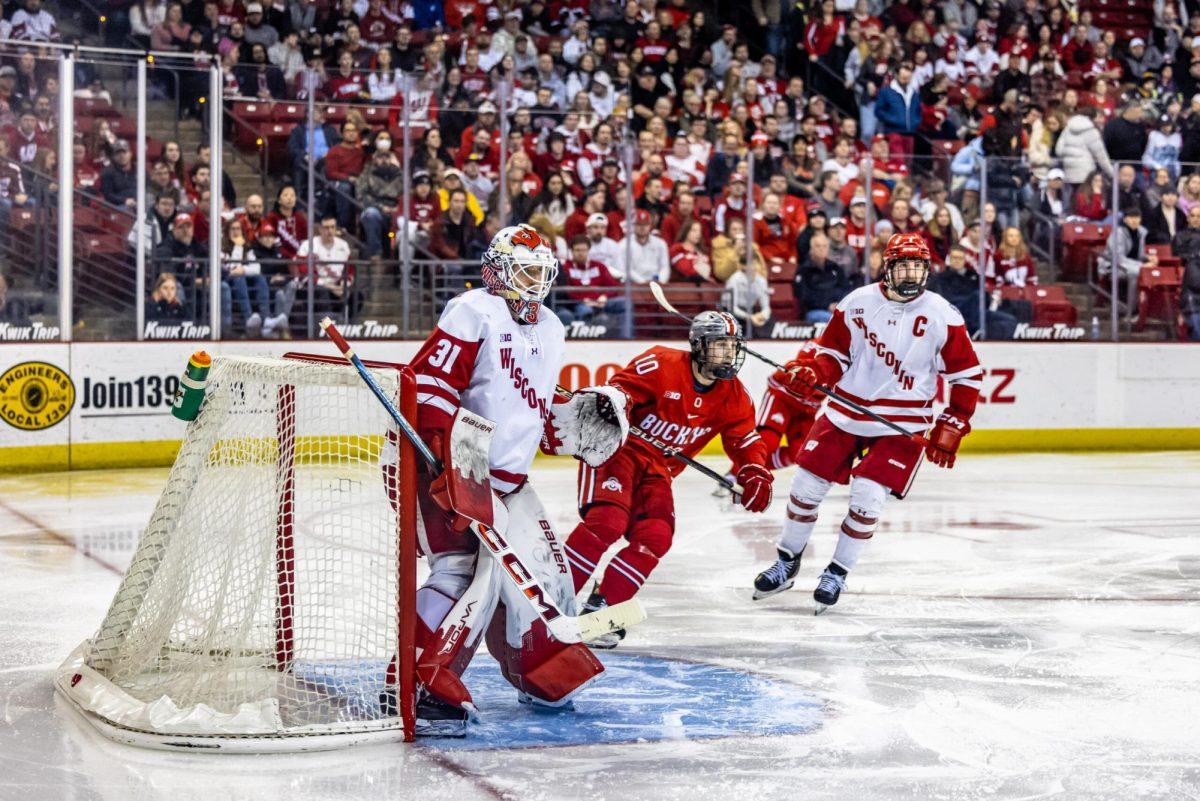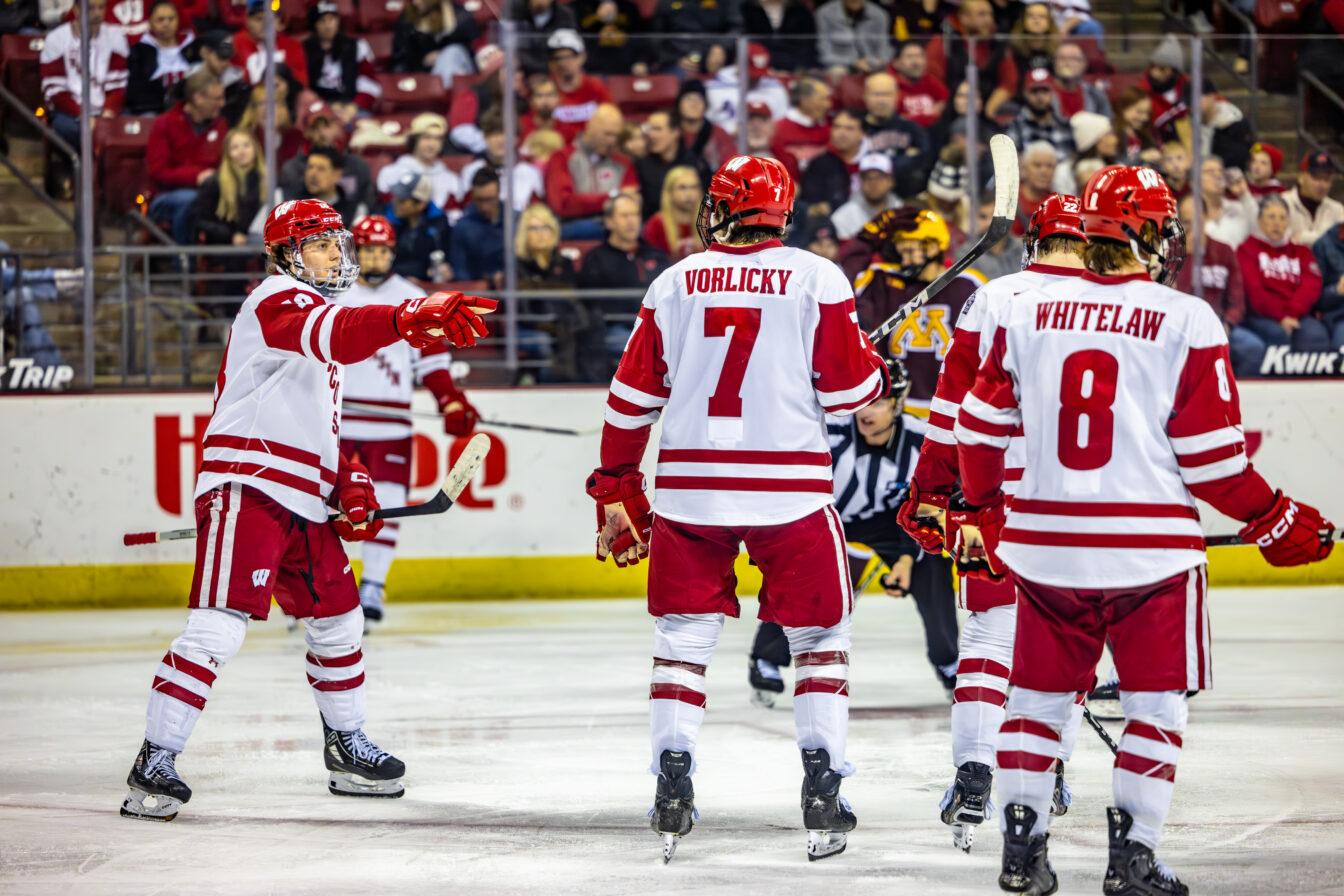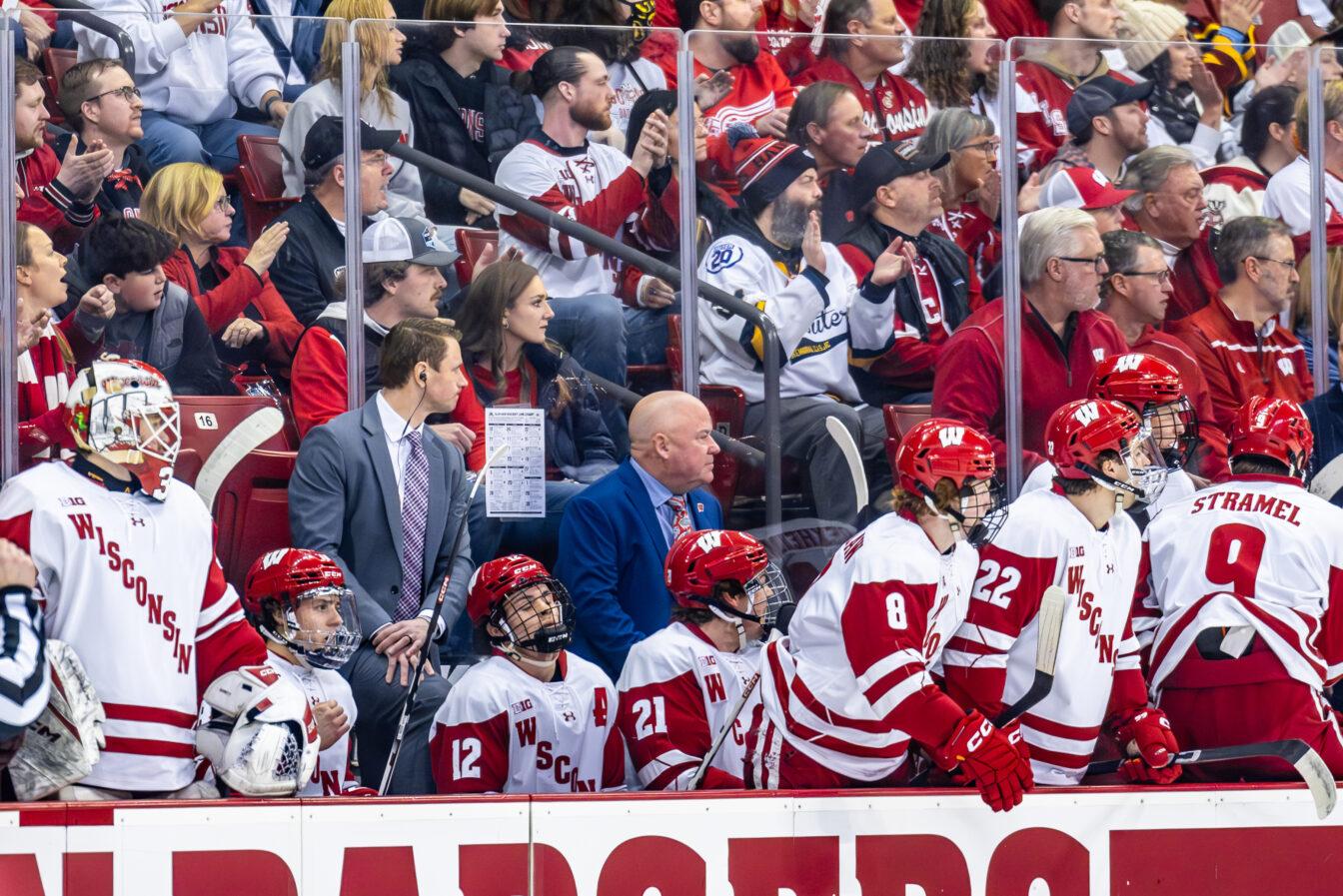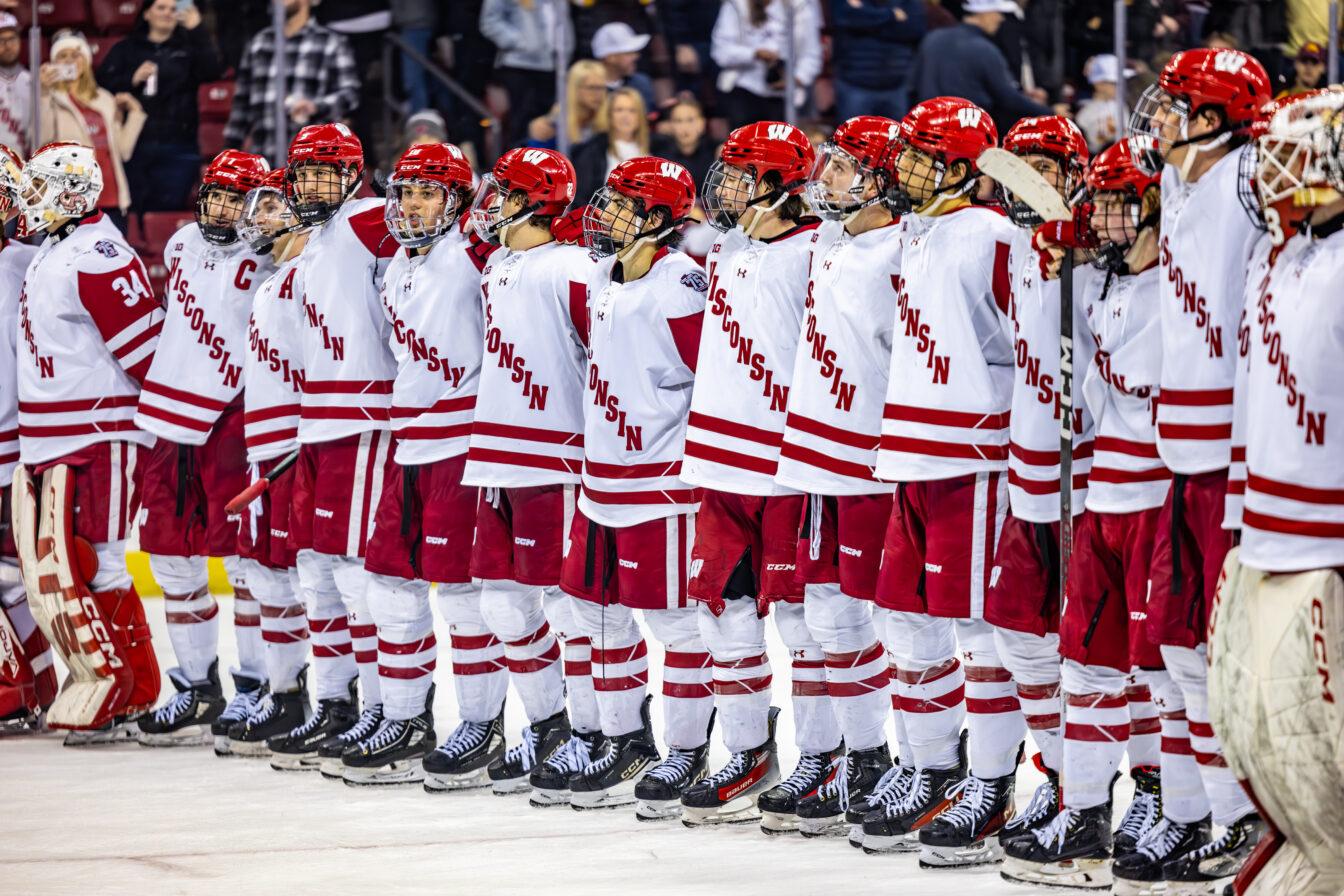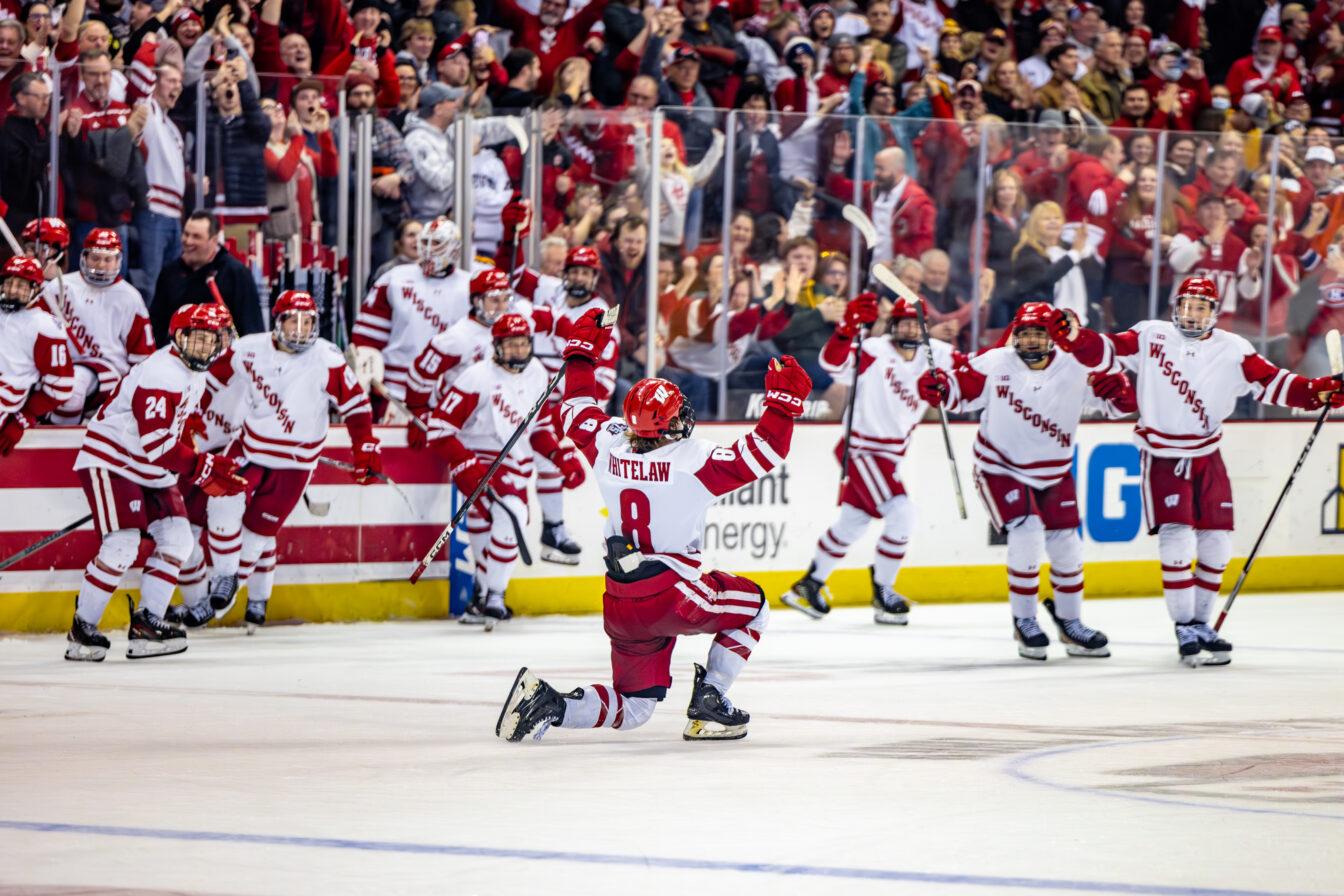Mike Eaves and the Wisconsin men’s hockey team were riding quite a high heading into last weekend’s WCHA series with No. 5 Minnesota Duluth. The Badgers hit the road with a season-high seven-game win streak, but none of those victories came against a team with a winning record.
That needed to change.
After dropping the series opener to the Bulldogs, UW finally broke through and came away with a 3-2 win in game two, and Eaves acknowledged the importance of that win.
“It’s hard to truly know how to qualify [the win] until the end of the year when they take a look at the RPI,” Eaves said. “But if you take a look at the outstanding features about it, beating the No. 5 team in the country, in their own building, on the road, will probably bear well for us at the end of the year.”
Earning a victory over Duluth is one thing, but doing so after being shutout the night before speaks to the resiliency the Badgers have displayed throughout the year.
“The game that came to mind was the game in Denver, one of the first games this season. We got beat 4-2, did not play up to expectations. The kids responded very well on Saturday,” Eaves explained. “So they’ve responded well, and we’ve kind of gotten used to that. So to see them respond the way they did Saturday was not a big surprise, but one that we needed to have.”
Road games are always a challenge, but Eaves noted the particular difficulty that exists when his team is forced to adjust to a smaller rink. The Bulldogs brand new AMSOIL Arena features a smaller 200’x85′ ice surface, and Eaves knew it would take his team time to adjust, and he wasn’t surprised to see better results in game two.
“We were missing passes, passes were bouncing off our sticks, and I think it was the process of going through, getting used to lack of time and space again because we were such a different team on Saturday,” Eaves said. “We went through that process, and we played the way that we thought we could have played on Saturday. We practiced all week at a small sheet, but you’ve got to play on that small sheet to get truly used to it, and we were much better on Saturday because of that fact we had played Friday night.”
Special teams issues
Early in the season, the Badgers were executing brilliantly on the penalty kill, consistently stifling the opponents’ chances with the man-advantage. But as of late, UW’s penalty killers have started to the see the puck end up in the back of their net more often. Wisconsin has allowed five power play goals against in the last four games, but Eaves isn’t too concerned with his shorthanded unit.
“A little bit of bad luck,” Eaves said. “Because we’ve talked about it as a staff. The puck has been going in a little bit more, but broken sticks and players making bad decisions to go get sticks and pucks going on there, loose pucks finding their way to guys in open areas… So structurally, we’re looking at it. We’re doing some good things. Part of that has been just a little bit of bad luck. And we go through those phases.”
Eaves also addressed his own power play and freshman forward Mark Zengerle, who has seen his production slip during the man-advantage.
Eaves acknowledged that teams have begun to scheme against the play-making forward, working to limit his space to see the ice and pick out passes. A primary assist against during UW’s 3-0 victory over Canisius is the only power play point-production from Zengerle in the past seven outings.
“The whole unit has to make an adjustment, and Mark as an individual also, in terms of just instead of knowing that they’re going to take that away, he’s got to be a little bit more hungry around the net and get there for rebounds and tip-ins, and he’s been doing that,” Eaves said. “And so it’s about taking what’s given. We still have good looks. We’re getting the shots we want. We got to make the shots, either directly going in the net or getting tip-ins and rebounds.”


